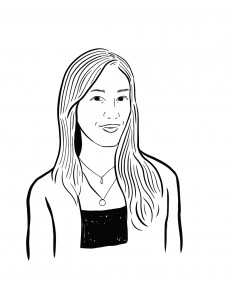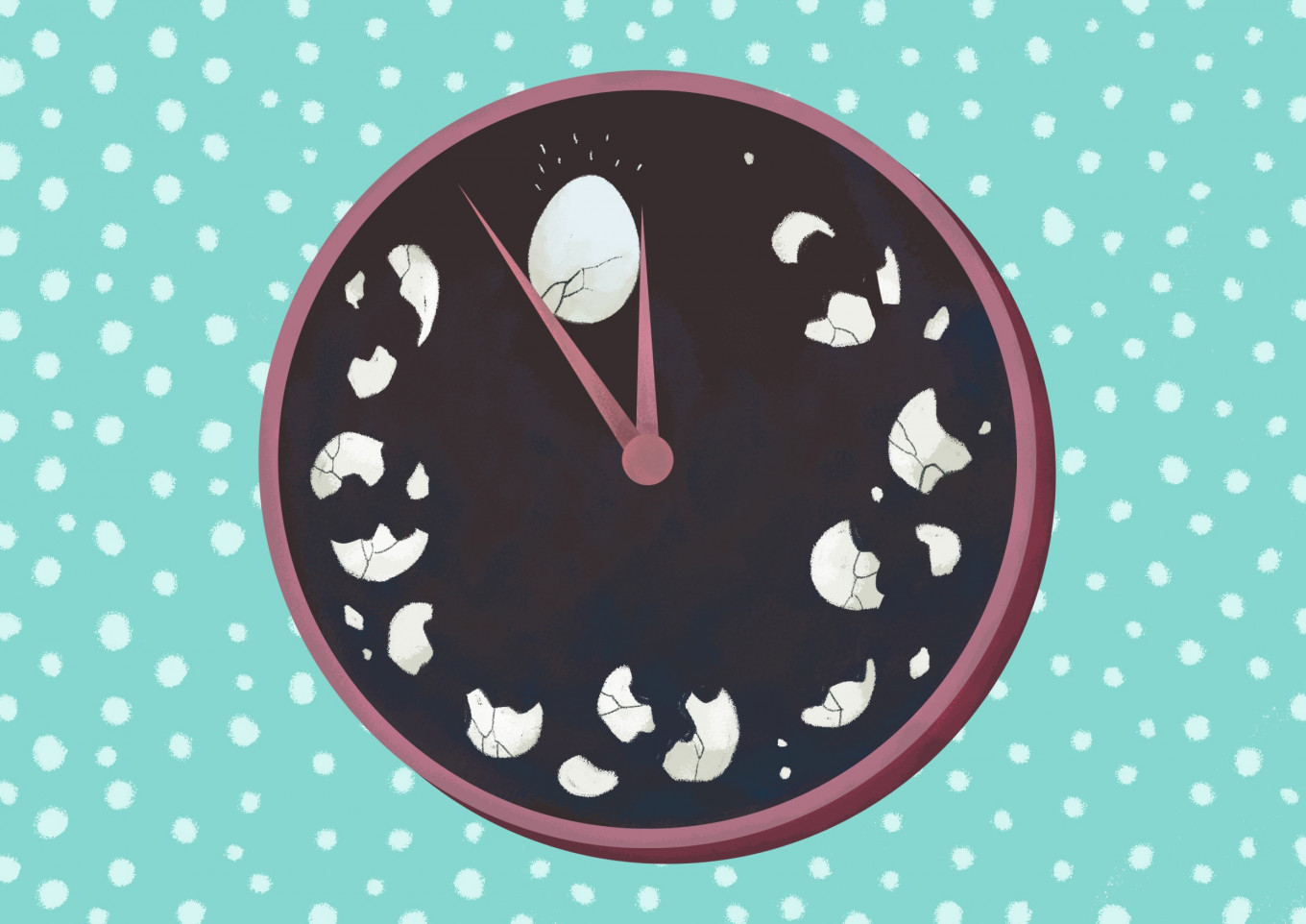“From head to toe, everything starts to fall apart, your hair, your skin and even your tears,” says Achmad Mediana, an obstetrician-gynecologist.
It sounds like he is describing a debilitating disease, but what he is really talking about is something nearly all women go through, perimenopause.
“It is the acne, the wrinkles the vaginal discomfort,” he adds, expanding a list that is both clinical and alarming.
My mother once described perimenopause as more difficult than childbirth, then refused to elaborate.
Was she exaggerating? Or should I be genuinely worried?
As someone who already battles monthly bouts of severe dysmenorrhea, I feel like I need to prepare for what lies ahead. I am turning 30 this year, and the early signs of perimenopause, those hormone-driven shifts that precede menopause, could be just a decade away.

Thank you!
For signing up to our newsletter.
Please check your email for your newsletter subscription.
The problem is, we do not talk about it enough.
There’s little awareness of what perimenopause really is, what symptoms to expect or how to prepare. The lead-up to menopause, the moment many women see as a relief from monthly pain, often goes unspoken.
A recent global survey by Astellas Pharma Inc., which involved 13,800 people across six countries, found that 66 percent believe that menopause and its symptoms are not taken seriously, while 59 percent consider it a taboo topic.
And that silence comes at a cost.
“Menopause is actually special. It should be accepted with kindness, not fear or worry." - Psychiatrist Ria Maria
The road to menopause
If menopause is the destination, then perimenopause is the long, unpredictable road to get there.
It can last anywhere from eight to 10 years and often begins in a woman’s 40s, although the exact timing depends on her health history and number of pregnancies.
The symptoms vary widely, both in type and intensity.
“Dry, dry, dry […] my hair, my skin, everything is just dry!” says Gen, 49.
“I feel like I got everything, hot flashes, weight gain, mood swings, forgetfulness, vertigo,” adds Anna, 48.
Achmad, who has practiced for over 30 years, says his patients most commonly report joint pain, hot flashes and decreased libido. He notes that blood pressure and other health issues can also become more common during this stage.
Muhammad Luthfi, an obstetrics resident doctor at Dr. Cipto Mangunkusumo Hospital, explains that perimenopause is marked by a decline in estradiol, the body’s primary form of estrogen, and a rise in follicle-stimulating hormone (FSH), which signals the ovaries to produce more estrogen. But as the ovaries age, they become less responsive, leading to fluctuating hormone levels.
According to Luthfi, around 90 percent of his patients experiencing perimenopause report dizziness, occasional tremors and extreme fatigue.
I have not had children, so I cannot compare it directly with childbirth, but childbirth, at least, has a due date. Perimenopause, with its slow progression, unpredictable symptoms and emotional swings, feels more like a long metamorphosis.
Maybe my mother was onto something.
The psychological toll
While the physical symptoms are more visible, the emotional and cognitive symptoms can be just as overwhelming, if not more so.
“Your way of thinking changes. You become forgetful, irritable, uncomfortable,” says Achmad.
That’s because falling estrogen levels affect brain function. Many women experience what’s often referred to as “brain fog”.
“It is not memory loss,” clarifies Ria Maria, a psychiatrist at Dharmawangsa RSKJ Mental Health Hospital.
“Women cannot focus, they forget new information, they feel disconnected. But this is not dementia, it is often tied to anxiety and depression.”
She recalls a patient who feared her husband would lose interest in her. That fear, she says, is not rare.
Achmad adds that many women grapple with a sense of loss during this period, especially in cultures where a woman’s value is still tied to fertility.
Support from partners and family is crucial. And so is honest conversation.
What can help
For those with severe symptoms, doctors may prescribe hormone replacement therapy (HRT) to restore levels of estrogen and progesterone.
“It is usually given if the symptoms are affecting quality of life,” Luthfi explains.
“For example, if a woman still wants to be sexually active but experiences pain, we might recommend HRT.”
But HRT is not one-size-fits-all. It carries some risks, including a potential increase in uterine wall thickening and cancer risk, so treatment must be personalized, especially for those with conditions like endometriosis or a family history of cancer.
Before turning to HRT, women can also try dietary changes.
Foods rich in phytoestrogens, like soy, sesame seeds, nuts, spinach and peaches, may help mimic estrogen in the body. Eating a balanced diet full of protein, fiber and healthy fats can also help regulate hormones and ease mood swings and fatigue.
Exercise is equally important. Regular strength training and cardio not only boost energy but also support bone health and reduce the severity of hot flashes and sleep issues.
That’s something 44-year-old Lea swears by.
“I had brain fog and other early symptoms, but they disappeared once I started running, working out and watching what I eat.”
And perhaps most importantly, do your research and talk about it.
“The women who are mentally prepared tend to have a smoother transition,” Maria says.
But she also acknowledges how hard that can be.
“In our society, menopause education rarely comes from professionals. A lot of the information online is just wrong.”
She’s even considering starting a support group for menopausal women at Dharmawangsa RSKJ. Because this stage of life should not be faced alone.
The conversation we need
An article from Harvard Medical School notes that fewer than 1 percent of published medical studies focus on menopause, even though up to 75 percent of age-related diseases are linked to it in some way.
In Indonesia, the lack of research is even more stark.
“Many women are too shy to talk about their condition, and even when they come in, it is hard to treat them properly if they’re not open,” says Luthfi.
“Menopause is actually special,” says Maria. “It should be accepted with kindness, not fear or worry. People need to be prepared for it. Do not wait until it hits you like whiplash.”
Some women still feel embarrassed to admit they are going through menopause. But they do not need to.
It is normal. And it is time we talk about it more.
Sheena Suparman is a writer for The Jakarta Post's Creative Desk. She is based in Jakarta but wishes she could be anywhere else. She’s usually powered by coffee, chips and cheeseburgers.























